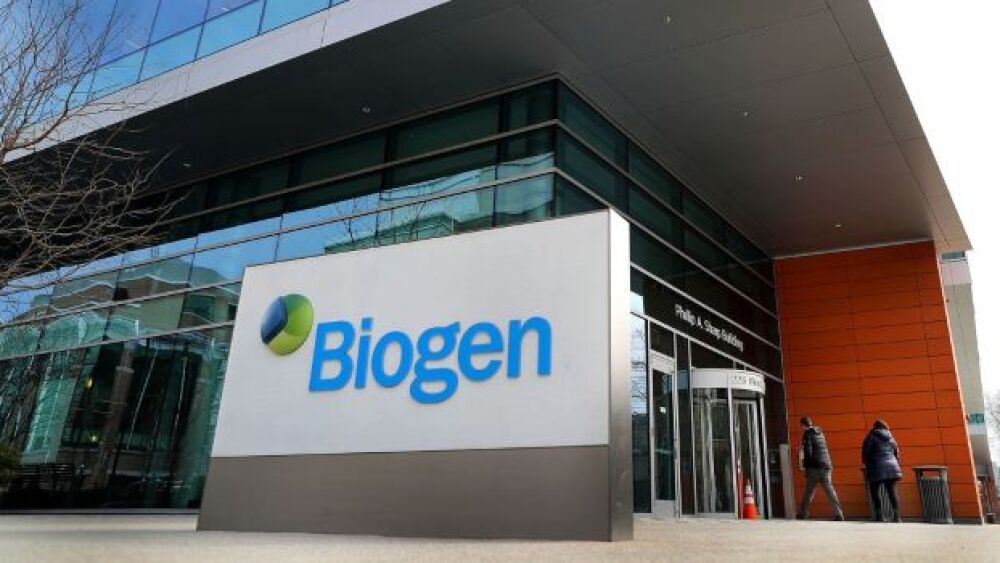Biogen announced the FDA has extended its review for ALS drug tofersen by three months. The regulator set a new PDUFA action date set of April 25, 2023.
John Tlumacki/The Boston Globe via Getty
The saga of Biogen’s experimental amyotrophic lateral sclerosis therapeutic tofersen gained another chapter Monday as the FDA extended its review by three months.
The regulator set a new Prescription Drug User Fee Act (PDUFA) action date of April 25, 2023 for tofersen, a potential treatment for a rare form of ALS, Biogen reported.
The FDA extended the review time for the drug due to additional information provided by Biogen in response to questions raised by the regulator. The FDA considered the additional data a major amendment to Biogen’s New Drug Application, which resulted in the extended timeline.
In July, the FDA granted the NDA priority review. A PDUFA date had initially been established for Jan. 25, 2023.
Tofersen is being assessed as a potential therapy for superoxide dismutase 1 (SOD1) ALS, a rare form of the devastating disease that accounts for about 2% of global cases.
Monday’s decision comes less than one month after Biogen posted positive one-year data from the Phase III VALOR SOD1-ALS trial that showed tofersen slowed the decline of disease through the lowering of SOD1 protein and neurofilament levels. Neurofilament is a marker of axonal injury and neurodegeneration.
Biogen did not specify if the follow-up VALOR data played a role in the FDA’s decision. The company declined BioSpace’s request for comment.
Developed by Biogen and partner Ionis Pharmaceuticals, tofersen is an antisense drug that binds and degrades SOD1 mRNA to reduce synthesis of SOD1 protein production. When initial data from VALOR was reported last year, tofersen missed its primary endpoint. At the time, the companies pointed to positive trends in secondary endpoints.
Data reported in June from VALOR and an open-label extension trial showed earlier treatment with tofersen slowed patient decline across critical measures of function and strength in SODI ALS patients, Biogen reported.
SOD1 protein levels were reduced by 33% in patients who began treatment early. For those SODI ALS patients who began treatment at a later date, there was a 21% reduction. Additionally, plasma neurofilament levels were reduced by 51% in the early-intervention group and by 41% in the cohort that received the drug at a later starting time.
A rare form of the disease, SOD1-ALS is caused by mutations in the SOD1 gene. Life expectancy for this form of ALS varies but some data suggests it’s typically less than one year. Currently, there is no targeted treatment for SOD1-ALS.
Despite the delay, Biogen noted it remains committed to providing the FDA with the appropriate information so it can complete the review of tofersen. As the regulator continues its work, Priya Singhal, Biogen’s interim head of R&D and head of global safety and regulatory sciences, said the company will maintain its early access program for tofersen.
In addition to the ongoing open-label extension of VALOR, tofersen is also being studied in the Phase III ATLAS study. That trial is designed to evaluate whether tofersen can delay clinical onset when initiated in presymptomatic individuals with an SOD1 genetic mutation and biomarker evidence of disease activity.





